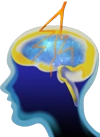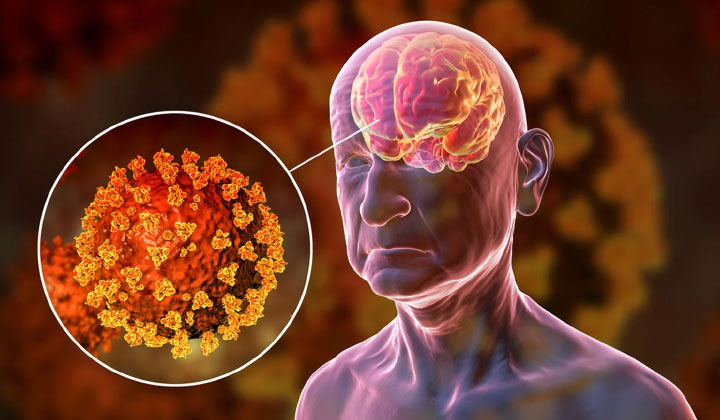Covid primarily affects the respiratory system, causing lung problems and poor oxygen saturation. However, we have seen a large number of people who have neurological effects in COVID. Recently, a high number of the neurological patients that visit the OPD have Covid or have presented with neurological indications of Covid.
Covid’s Neuropsychological Effects
Many patients who have recently taken covid are isolated at home or in a hospital’s intensive care unit (ICU). They suffer from a range of neuropsychological difficulties once they recover, including acute weakness, weariness, chronic fatigue (inability to think properly), slowness, drowsiness, and a lack of energy. We first assumed this was due to psychological issues, home isolation, or intensive care therapy. This is somewhat correct, however Covid, in and of itself, causes these symptoms… As a result, these individuals must be treated for sadness and anxiety, which are causing many of them to suffer for an extended period of time. This is also known as Long Covid.
Aside from that, many individuals, especially caretakers, suffer from severe anxiety and sadness, which may endure for a long time and must be addressed since caregivers suffer as well.
Many of these patients suffer from depression and anxiety as a result of family losses, protracted ICU hospitalizations, and great financial or emotional hardship. This should not be disregarded, but rather treated extremely seriously, since it significantly reduces the quality of life. This post-covid syndrome and covid effects in caregivers is an important factor of covid therapy.
Covid’s Neurological Effects
In terms of pure neurological terminology, we have encountered a number of individuals who have had a brain stroke, which implies that their blood vessels (either arteries or veins) have been clogged. These individuals present to neurologists with symptoms of a stroke, headache, and a blockage of the brain’s veins and arteries. Only after we do the tests do we find out whether they had covid or if they have continuous covid. As a result, Covid causes obstruction of blood vessels in the brain, arteries, and veins.
We believe covid is a risk factor and trigger for stroke and heart attack. This condition affects a lot of young adults in their twenties and thirties who have no other risk factors for stroke. Only by treating this aggressively and early can many people be helped.
Aside from that, many patients suffer from a variety of cranial nerve palsies, including facial nerve palsy, in which the face becomes crooked and the facial muscles become paralyzed, either on one or both sides. Sometimes the muscles that allow eyeball movement are damaged, resulting in double vision, difficulties opening and closing eyelids, and a long recovery period with therapy.
Another impact of Covid is in individuals with Guillain-Barre syndrome, in which all of the patient’s limbs are completely immobilized. They have difficulties eating and must be fed via a tube, and in certain circumstances, they are placed on a ventilator since their respiratory muscles have also been paralyzed. As a result, this must be treated aggressively with a variety of pricey medications. This is a potentially fatal illness, but with proper therapy and ICU care, the majority of these individuals will recover.
Many patients, particularly in the initial wave of Covid, complained of loss of taste and smell. This was also due to nerves, notably the olfactory cranial nerve and the other cranial nerves impacting the brain. It’s also reversible. It is a possible presenting sign of Covid.
The virus only enters the brain on rare occasions, as demonstrated in a few instances. Perhaps via the olfactory nerve, causing cognitive abnormalities such as hallucinations and memory loss. It may cause convulsions, unconsciousness, and other neurological brain abnormalities in rare cases. These are the typical covid complications.
Options for Treating Brain Problems
Strokes are to be handled as normal. The difficulty, however, is that Covid patients are taking up the bulk of hospital beds at this time. As a result, there are not enough ICUs available to treat stroke victims. Because the stroke therapy must be completed within a few hours, treatment at this time proved difficult. As a result, it is critical that we transport the patient to a stroke hospital.
When cranial nerve palsies arise, patients are given a brief course of steroids. The majority of them heal quite well.
Patients with neuropsychological issues need a great deal of care, counselling, and medication. Over time, the majority of people overcome this disease. However, full recovery may take many weeks to months.
Read our other Post:

